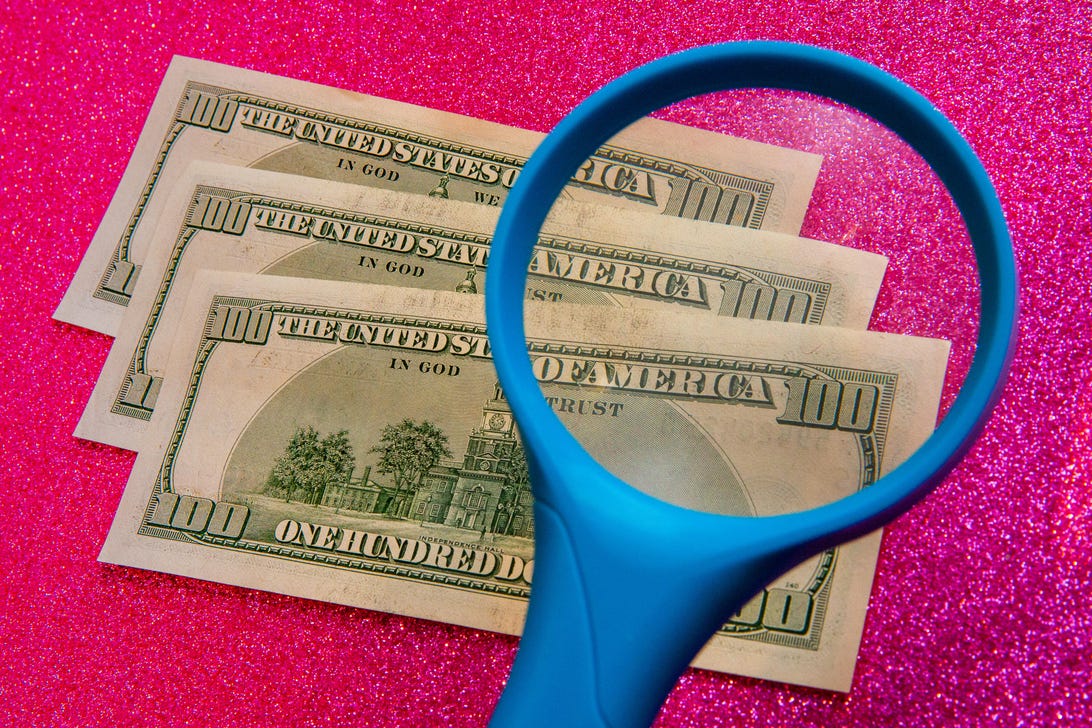
Social media has us all opening up about finances.
Sarah Tew/CNETConversations around money were always sensitive when I was growing up. Even sensible topics like how you manage your finances, never mind something as personal as your salary, were off limits. It was understood that you didn’t bring up the subject to anyone beyond your immediate family.
Things have changed. Social media has shattered old taboos, turning the topic of money on its head. Rather than being a taboo subject, wealth is something to be flaunted on Instagram, shared on Venmo or excruciatingly detailed on the WallStreetBets subreddit.
It’s a dynamic that’s gotten some people, often celebrities, in trouble. Think Ellen DeGeneres describing enduring quarantine in her mansion as like “being in jail.” Those controversies are a strong indication that money is still a touchy subject, particularly given our society’s vast wealth gap.
But there’s no indication the trend toward publicly displaying your wealth is slowing down. More than ever, people feel comfortable sharing the details of their finances. Big salaries, bets that pay off and investments that go horribly wrong are all posted online for everyone to see.
Financial exhibitionism is a natural extension of how social media has opened windows into our lives. We’ve been enticed to share more and more details, and we do. But while more transparency around money is generally a good thing, the act of turning our transactions and personal finance into theater could have damaging consequences. The show of wealth creates an unattainable ideal for some, including the individual who made the post.
“If you portray yourself as a successful investor, for example, you may feel an obligation to continue to deliver on that,” said Lars Perner, associate professor of clinical marketing at the University of Southern California. Conversely, he added, seeing other people’s feeds full of success stories could be a source of anxiety, provoking a desire to keep up.
There’s a danger to the blurring of those lines between reality and performance. CNET Staff Reporter Erin Carson talked about the mental toll it takes when the image you project on social media fails to match your real self. That’s particularly dangerous when it comes to the perception of an affluent lifestyle.
Half of posting on social media is sharing photos, videos and other tidbits that present the ideal version of yourself, whether it’s as a generous activist, a wine connoisseur or a wealthy jetsetter. Influencers make a career out of it.
These posts often garner angry backlashes. Over the past year, one celebrity after another has gotten into trouble for being tone deaf or insensitive during a pandemic that has hobbled the economy and left millions unemployed.
But that lavish lifestyle on social media is enticing for many looking to get rich, which is what leads them to the stock market. When it comes to investing, you can find scores of stories of people with huge profits on Reddit’s WallStreetBets section. Even massive declines are a thing to be perversely celebrated as “loss porn,” another form of personal finance theater.
That communal aspect — the sharing of gains and losses — is one reason more people are turning to stock trading apps like Robinhood, which helped fuel the rise of meme stocks like GameStop and AMC.
It’s also one reason why Robinhood has gotten into so much hot water, as CNET Senior Reporter Richard Nieva explained in his story about the controversial trading platform. The social element eggs you on through Reddit posts, adding fuel to the willingness to make wild bets.
“Treating this like a game and luring young and inexperienced customers to make more and more trades is not only unethical, but also falls far short of the standards we require in Massachusetts,” Secretary of the Commonwealth William Galvin said in December after Massachusetts sued the company.
Indeed, that pressure to continue to post success stories may lead to riskier and riskier bets, USC’s Perner said.
CNET Daily News
Stay in the know. Get the latest tech stories from CNET News every weekday.
Even simple transactions — groceries or beers — have been made social thanks to payment app Venmo. By default, it makes your transactions, which include descriptions and emoji, public for anyone to see.
Venmo’s open style and ubiquity have generated headlines. President Joe Biden’s friends list was available for all to see, a potential security nightmare. Florida Rep. Matt Gaetz made payments — visible in the app — to a Florida politician who pleaded guilty last month to federal charges, including sex trafficking.
As CNET Reporter Laura Hautala notes in her story on Venmo, that social dynamic, and the cutesy emoji language that proliferates all of our Venmo feeds, is what keeps people coming back.
So even if those public payments may get you in trouble, you’re going to continue to make them anyway.
Meanwhile, I’m still leery about telling my mother how much I make.

